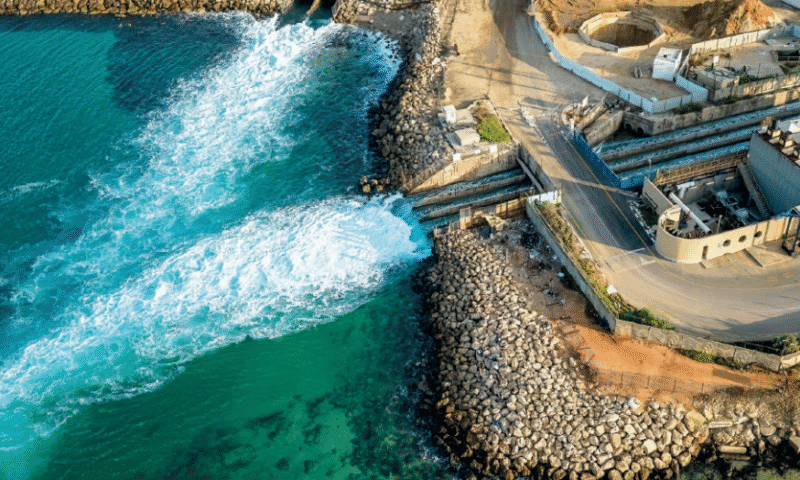In the Chtouka-Aït Baha region, south of Agadir, desalinated water has become an essential bulwark against drought. Thanks to it, agricultural operations, particularly major cherry tomato producers like the Azura group, manage to sustain their activities in an increasingly arid climate. However, this vital resource raises increasingly urgent economic and ecological questions.
Since 2022, the desalination plant in Chtouka has been supplying water to 12,000 hectares of crops and also provides drinking water for 1.6 million people. By 2026, its capacity is expected to reach 400,000 cubic meters per day, according to the Regional Agricultural Development Office.
This resource has allowed authorities to avoid an estimated annual loss of over 860 million euros and the disappearance of more than a million jobs in the region. However, it remains out of reach for small operators due to its high cost: five dirhams per cubic meter, which is five times more than conventional water.
“We wouldn’t be here without this water,” admits Abir Lemseffer, deputy CEO of the Azura group, highlighting the tension between profitability and survival. This tension is shared by other farmers like Mohamed Boumarg, who has managed to triple his cultivated land thanks to access to desalinated water.
But this miracle solution is not without limits. In addition to its high energy costs, it generates brine discharges into the sea, a concern for some environmental specialists, despite official assurances of the system’s safety.
Usable only for high-value crops, desalinated water helps maintain the agricultural leadership of Souss, a region responsible for 85% of Morocco’s fresh vegetable exports. Yet, it raises a crucial question: can food sovereignty be built on such a costly and energy-intensive solution?
With AFP


